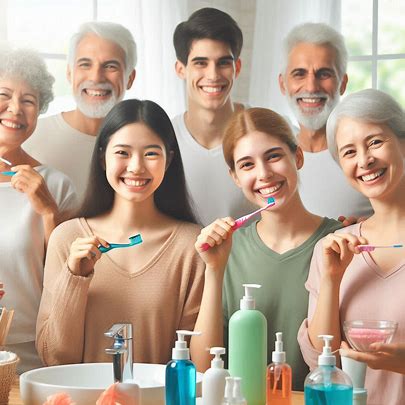The Importance of Personal Hygiene: A Guide to Health and Well-Being
Introduction
Personal hygiene is the foundation of a healthy lifestyle, playing a critical role in preventing Jimmying illness, boosting self-confidence, and fostering positive social interactions. It encompasses the daily practices we undertake to keep our bodies clean, healthy, and presentable. From washing hands to maintaining oral health, personal hygiene is more than just a routine—it’s a commitment to well-being that impacts both physical and mental health. In today’s fast-paced world, where new health challenges and trends emerge, maintaining good hygiene is more important than ever. This article explores the significance of personal hygiene, practical tips for daily practices, current trends, and the broader impact on individual and community health.
Why Personal Hygiene Matters
Personal hygiene is essential for several reasons, as it directly influences health, social perceptions, and mental well-being. By practicing good hygiene, individuals can prevent the spread of infectious diseases, maintain physical health, and project a positive image to others. Poor hygiene, on the other hand, can lead to health issues such as skin infections, dental problems, and the transmission of germs.
Preventing Illness
One of the primary benefits of personal hygiene is its role in preventing the spread of diseases. Regular handwashing, for example, is one of the most effective ways to reduce the transmission of pathogens like bacteria and viruses. According to the Centers for Disease Control and Prevention (CDC), handwashing can reduce the risk of respiratory infections by 16-21%. Similarly, proper grooming and cleaning practices help eliminate germs that can cause infections such as conjunctivitis or fungal skin conditions.
Boosting Confidence and Social Interactions
Good hygiene enhances self-esteem and influences how others perceive us. Clean hair, fresh breath, and neat clothing contribute to a polished appearance, which can improve confidence in professional and social settings. For instance, maintaining fresh breath through regular brushing and flossing can make conversations more pleasant, while clean clothing and grooming habits signal respect for oneself and others.
Mental Health Benefits
Personal hygiene also supports mental health. The act of taking care of one’s body can be a form of self-care, reducing stress and promoting a sense of control. For example, a warm shower or a skincare routine can serve as a relaxing ritual, helping individuals unwind and feel refreshed.
Key Personal Hygiene Practices
To maintain optimal health, incorporating a range of hygiene practices into daily life is essential. Below are some key areas to focus on, along with practical tips for implementation.
Hand Hygiene
Handwashing is the cornerstone of personal hygiene. The World Health Organization (WHO) recommends washing hands with soap and water for at least 20 seconds, especially before eating, after using the restroom, or after touching public surfaces. In situations where soap is unavailable, alcohol-based hand sanitizers with at least 60% alcohol are an effective alternative. For example, keeping a small bottle of sanitizer in your bag can ensure hygiene on the go.
Oral Hygiene
Maintaining oral health prevents cavities, gum disease, and bad breath. Brush your teeth at least twice a day using fluoride toothpaste, and floss daily to remove food particles and plaque. Regular dental check-ups, ideally every six months, help detect issues early. A real-world example is the rise in popularity of electric toothbrushes, which studies show can remove up to 21% more plaque than manual brushing.
Body Hygiene
Regular bathing or showering removes dirt, sweat, and bacteria from the skin, preventing body odor and infections. Use a mild soap and focus on areas prone to sweat, such as underarms and feet. In 2025, eco-friendly body washes with natural ingredients like aloe vera or tea tree oil are trending, reflecting a shift toward sustainable hygiene products.
Hair and Scalp Care
Clean hair and a healthy scalp contribute to overall hygiene and appearance. Wash your hair regularly based on your hair type—oily hair may require daily washing, while dry hair might need less frequent care. Use a gentle shampoo and conditioner, and avoid overwashing to prevent scalp irritation. Scalp massagers, a popular trend in 2025, promote circulation and enhance the effectiveness of hair care products.
Nail Hygiene
Keeping nails trimmed and clean prevents the buildup of dirt and bacteria, which can lead to infections. Use a nail brush to clean under the nails, and avoid biting them, as this can introduce germs into the mouth. Regular manicures and pedicures, even at home, can maintain nail health and appearance.
Clothing and Footwear
Wearing clean clothes and maintaining footwear hygiene is often overlooked but vital. Wash clothes regularly, especially undergarments and socks, to remove sweat and bacteria. For footwear, rotate shoes to allow them to air out and use foot powder to prevent odor and fungal infections like athlete’s foot.

Current Trends in Personal Hygiene
In 2025, personal hygiene is evolving with advancements in technology and a growing emphasis on sustainability. Here are some notable trends shaping the way people approach hygiene:
Sustainable Hygiene Products
Consumers are increasingly opting for eco-friendly products, such as biodegradable soaps, bamboo toothbrushes, and refillable deodorant containers. Brands are responding by offering zero-waste packaging and natural ingredients, aligning with global efforts to reduce environmental impact.
Smart Hygiene Devices
Technology is transforming personal hygiene. Smart toothbrushes with sensors track brushing habits and provide feedback via apps, ensuring thorough oral care. Similarly, UV-C sanitizing devices for personal items like phones and keys have gained popularity, especially in public health-conscious environments.
Personalized Skincare and Hygiene
The rise of personalized hygiene products, tailored to individual skin types or microbiomes, is a significant trend. For instance, subscription-based services analyze skin samples to create customized soaps or moisturizers, ensuring optimal results for users.
Hygiene in Public Spaces
Post-pandemic awareness has led to increased hygiene measures in public spaces. Touchless soap dispensers, hand sanitizer stations, and antimicrobial surfaces are now common in places like offices, schools, and public transportation hubs, reducing the risk of germ transmission.
Challenges and Misconceptions
Despite its importance, personal hygiene faces challenges and misconceptions. Some people believe that minimal hygiene is sufficient, but neglecting regular practices can lead to health issues. Another challenge is access to hygiene resources, particularly in underserved communities. Public health initiatives in 2025 are addressing this by distributing free hygiene products like soap, toothpaste, and menstrual products to those in need.
Overcoming Barriers
To overcome barriers, education is key. Community programs and schools are increasingly teaching hygiene practices to children and adults, emphasizing their long-term benefits. For example, handwashing campaigns in developing regions have significantly reduced diarrheal diseases, according to WHO data.
The Broader Impact of Personal Hygiene
Personal hygiene extends beyond individual health to benefit communities. Clean individuals are less likely to spread infections, contributing to public health. In workplaces, good hygiene fosters a professional environment and reduces sick days, boosting productivity. In social settings, it promotes positive interactions and reduces the stigma associated with poor hygiene.
Conclusion
Personal hygiene is a vital component of health, confidence, and social well-being. By incorporating practices like handwashing, oral care, and regular bathing into daily routines, individuals can prevent illness, enhance their appearance, and support mental health. The 2025 trends, such as sustainable products and smart devices, reflect a growing awareness of hygiene’s importance and its environmental impact. By prioritizing personal hygiene, individuals contribute to their own health and the well-being of their communities, creating a cleaner, healthier world.




